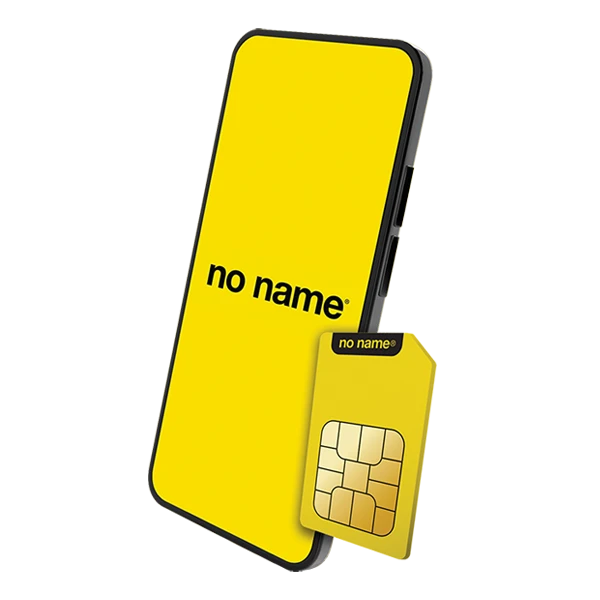
WIND CEO: Favourable Wireless Rules for Verizon Are “Completely Unfounded”

Ottawa’s wireless spectrum rules have recently come under fire by incumbents Rogers, Bell and TELUS as they claim the playing rules aren’t fair and give advantages to foreign companies such as Verizon. Through the noise, WIND Mobile CEO Anthony Lacavera doesn’t agree, as he has dismissed those claims as “completely unfounded.”
Speaking with the Globe and Mail, Lacavera says our incumbents are being “disingenuous” with their claims of being treated unfairly. The ‘Big 3’ have received more than ample assistance from the Federal Government in creating their wireless businesses, specifically the “spectrum gifts” to carriers in the 1980s and 1990s, which have resulted in a “substantial spectrum imbalance”, thus resulting in disadvantages for any new wireless startup carriers, regardless of size.
According to Industry Canada, Rogers, TELUS and Bell collectively possess licenses for roughly 85% of all “currently usable mobile spectrum” and provide services for 90% of all wireless customers. As more users rely on data services over voice, spectrum battles are more important than ever.
Lacavera said on Friday:
“Spectrum is a national asset and it was allocated to incumbents in the mid-eighties and the mid-nineties on a beauty contest basis – a free basis. And that spectrum today has very high value,”
He says Ottawa’s rules for the upcoming 700 MHz spectrum auction are in place for a reason to offset the challenges newer entrants face against the incumbents, which go beyond just spectrum. Rogers, TELUS and Bell own media assets, offer telecom service bundles, long wireless contracts and their decades long head start in building wire-line assents help them hold their advantage over any new competition.
For these reasons alone, Lacavera disregards the idea Ottawa’s spectrum policy will cause a large foreign telecom like Verizon to exploit the industry:
“A U.S. major assessing the market is clear evidence that the government policy to foster more competition in wireless is working. And the frantic reaction from all three incumbents is all the evidence one should need to assess the need for more competition to disrupt the entrenched and cozy oligopoly.”
The issue at stake are the four available blocks of 700 MHz spectrum in the upcoming auction. If Verizon were to enter Canada, it would be treated as a newer carrier and be able to bid on two blocks, while our incumbents limited to one. This means one incumbent could lose out entirely, which has caused the ‘Big 3’ to cry foul.
Bell’s CEO wrote a public plea to Canadians via a two-page ad in the Toronto Star, claiming the wireless industry would be in jeopardy if Verizon came to town. Rogers CEO Nadir Mohamed met with the Star’s editorial board to reiterate we have no need for a fourth carrier, as it’s already hard enough with three in this unsustainable market. He also revealed government officials flew directly to New York to offer ‘favours’ to Verizon if they agreed to enter Canada’s wireless market.
TELUS CEO Darren Entwistle has claimed a “bloodbath” would ensue if Verizon entered the spectrum bidding process, as incumbents would be fighting tooth and nail to acquire a precious block of 700 MHz airwaves to prevent being the odd one left out.
Moreover, rumours have pointed to Verizon offering a $700 million deal to acquire WIND Mobile and possibly Mobilicity as well, two new entrants the incumbents were prevented from acquiring by Ottawa. TELUS bid $380 million for Mobilicity but the deal was ultimately rejected by the Federal Government.
WIND Mobile is not alone in calling out the foul cries by our incumbents, as Eastlink CEO Lee Bragg is also critical of the recent stance by the Big 3 on Ottawa’s wireless rules:
“While we agree companies the size of Verizon should not be given any advantages, this is not a Verizon issue. It is about how we create the right structure to ensure stable completion in all areas of rural and urban Canada,”
Our wireless incumbents reiterated this week they have not received handouts from the government, as Bell CEO George Cope said:
“I think if you study the financials from 1985 to 2000, you’ll find that no one who owned a wireless company in Canada made any money,”
…since 1985 when the industry became competitive in wireless, we had to compete like everyone else. We’ve had no special privileges granted.”
Rogers CEO Nadir Mohamed echoed it isn’t fair to compare previous auctions to Verizon’s advantageous entry terms:
“When we started in ’84, there weren’t very many people talking about wireless the way we are today. It was very much a bet on something that hadn’t happened. We built the networks in Canada,”
“I think today looking at a company like Verizon or a large U.S. incumbent, it is a very different picture. … We are not saying anything that would suggest we’re not open for competition. All we’re saying is we should have the same rights.”
Below is a timeline of spectrum history in Canada, as detailed by the Globe and Mail:
1985: Rogers Cantel Inc. and telcos receive licences for the 800 MHz frequency in a comparative review or “beauty contest.”
1995: Industry Canada conducts a “beauty contest” for the PCS band and implements a spectrum cap. Licences given to Clearnet, Microcell, Rogers and telcos.
1996: Federal Budget introduces legislative changes to enable spectrum auctions.
2000: Telus buys Clearnet and returns some spectrum.
2001: Returned spectrum, along with previously reserved PCS licences, are auctioned. Rogers, Bell, Telus win licences.
2004-2005: Auctions of the 2.3 GHz and 3.5 GHz bands; Rogers buys Microcell.
2008: Auction of Advanced Wireless Spectrum licences.
Clearnet and Microcell offered some of the best cellphone plans when they started up in Canada, only to be eventually acquired by TELUS and Rogers, respectively. It’s clear Ottawa is trying very hard to prevent history from repeating itself, as the TELUS/Mobilicity deal was shut down, sending a clear signal the government will not allow incumbents to acquire newer entrants anymore.

